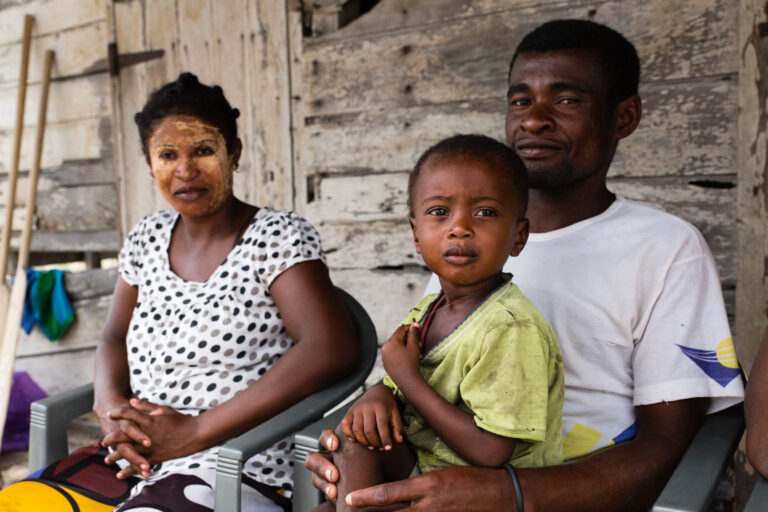Incorporating family planning services within community conservation initiatives can address the unmet reproductive health needs of hard-to-reach populations, enabling couples to access contraception and avoid unintended pregnancies.
This is the finding of a paper just published in Studies in Family Planning, which reports on changes in modern contraception use and general fertility rates between 2009 and 2013 in the Velondriake locally managed marine area of southwest Madagascar, where Blue Ventures began implementing an integrated Population-Health-Environment (PHE) programme in 2007.
The programme was developed in close collaboration with health partners including Madagascar’s Ministry of Public Health, incorporating the provision of family planning and other community-based health services with local fisheries management and alternative coastal livelihood initiatives. Condoms, oral contraceptive pills and injections are offered by local women trained as community health agents, while long-acting implants and intrauterine devices are offered by Marie Stopes Madagascar’s mobile outreach teams. Integrated community outreach activities engage men, women and youth in discussions about health-environment linkages.
Family planning services delivered through Blue Ventures’ PHE programme have led to a significant uptake of modern contraceptives and a decline in fertility: modern contraception use among sexually active women of reproductive age increased more than twofold (from 25% in 2009 to 59% in 2013) in the Velondriake area, at a time when practically no other family planning services were available locally and against a backdrop of stagnating national contraceptive prevalence. Meanwhile, the general fertility rate in the Velondriake area declined by 20% over the same period (from 178 live births per 1,000 women of reproductive age in 2009 to 143 in 2013). It’s important to note that changes in fertility were not an objective of this reproductive rights-based PHE programme, but they were nevertheless an observed outcome relating to the voluntary uptake of family planning services.
These results suggest that this PHE programme has enabled couples to avoid unintended pregnancies, thereby reducing undue demands on the natural resources upon which local livelihoods depend and bolstering community-based marine conservation efforts. These results also provide evidence that cross-sector partnerships between environmental and health organisations can be effective in increasing access to family planning services for hard-to-reach populations living in remote areas of high biodiversity, where health service providers typically struggle to operate.
In light of recent changes to the global health funding landscape, it would appear that such collaborative approaches to addressing the unmet family planning needs of under-served communities are more important than ever.
For further information please contact: [email protected]
Download the full paper here: onlinelibrary.wiley.com/doi/10.1111/sifp.12016/full
Find out more about Blue Ventures’ PHE work here: blueventures.org/conservation/approach/phe
Thanks to our health partners: blueventures.org/about/partners























